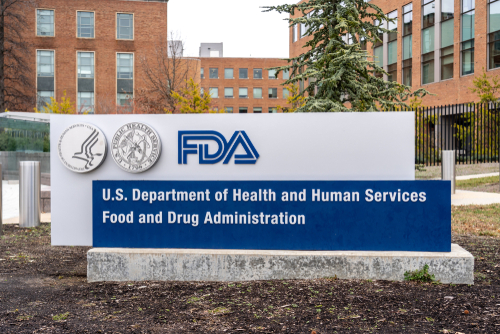
In August, the US Food and Drug Administration (FDA) released a discussion paper outlining an enhanced systematic process for the post-market assessment of chemicals in food to identify risks to our food supply. This includes food additives, color additives, substances generally recognized as safe (GRAS), substances used in contact with food, and chemicals present as unintentional contaminants.
The document, which was followed in September by a public meeting, included questions for the public and an invitation to comment directly to the FDA. The results from this query will help shape the development of a post-market chemicals program under the new FDA Human Foods Program.
Diet and Public Health
As clinicians, especially in the specialty of nephrology, we know good nutrition is critical for patients with chronic and acute kidney disease. Proper nutrition is imperative to delay the progression of kidney disease, preserve renal function, and prevent a rapid decline in health for patients receiving dialysis.
All clinicians have seen the negative effects of diets full of fast and processed foods, especially among younger people. There has been a notable shift in the population affected by kidney disease. Approximately 30% of the patients I have been working with in the Houston area over the last three years are less than 52 years of age.
Research and real-time data are proving that diets high in sodium, sugar, corn syrup, phosphorus, and calcium are leading to cancer, metabolic disease, diabetes, hypertension, stroke, heart disease, and end-stage kidney disease.
Clinicians have the opportunity and responsibility to share our personal expertise on this matter and provide insight into food quality and how it affects public health. We must weigh in and advocate for healthier food for our patients, our children, and ourselves to ensure a better future.
Suggestions for Submitting Comments
When commenting to the FDA, consider introducing yourself, your credentials, your personal expertise, and barriers to a healthy diet that you have observed while working with patients. Share how food safety issues impact you or your family, request that the FDA consider your comments in their post-market assessment, and state how you would like to be contacted with the results.
Points you may want to include in commentary:
- Phosphorus additives absorbed 100% in the body cause hyperphosphatemia, which damages patients’ soft tissues, such as the heart, lungs, and blood vessels.
- Excessive sodium and monosodium glutamate (MSG) cause patients to drink more fluids that they cannot excrete via urine, causing fluid overload and hospitalization.
- Added sugar and corn syrup in foods increases diabetic patients’ blood sugar levels, causing damage to their vascular system and kidneys, and can lead to kidney disease.
Potential suggestions you can ask the FDA to consider include:
- Print the amount of phosphorus added to foods on nutrition facts labels and limit the amount that can be added.
- Make food packages smaller to help reduce the amount of preservatives and chemicals consumers eat.
- Set a limit on how much sodium can be added to food. Reduce the amount of sodium and MSG used in fast and processed foods. Encourage manufacturers to use natural spices and herbs instead.
- Reduce and/or limit the amount of corn syrup, sugar, and artificial sweeteners added to foods. Encourage the use of real sugar and natural sweeteners such as honey instead of chemically derived sweeteners.
Act Now
Please consider sharing a letter or a brief comment with the FDA. Consider how our food supply affects the nation’s health and longevity and make suggestions on how the agency can improve the quality of our food and be more transparent about food quality.
Comments are due December 6, 2024, and can be submitted online.







 © 2025 Mashup Media, LLC, a Formedics Property. All Rights Reserved.
© 2025 Mashup Media, LLC, a Formedics Property. All Rights Reserved.